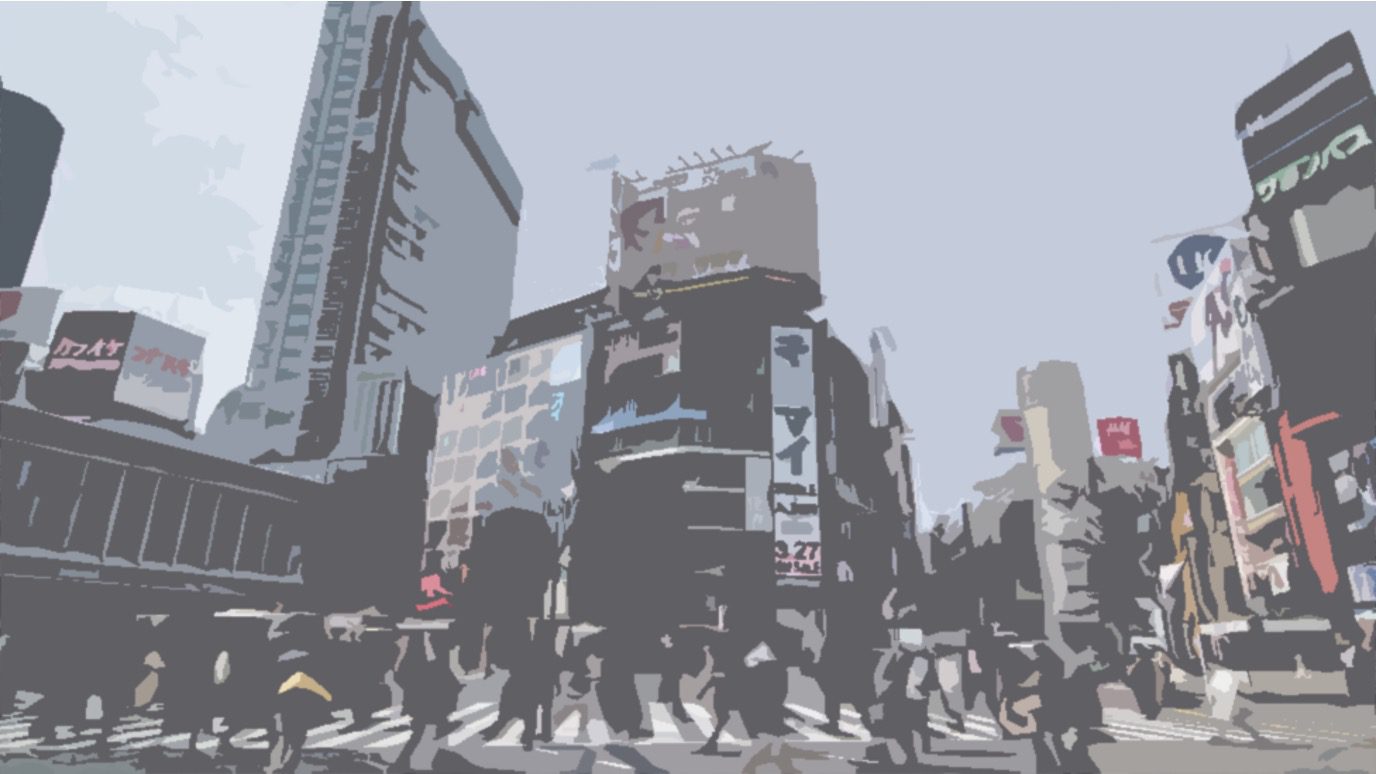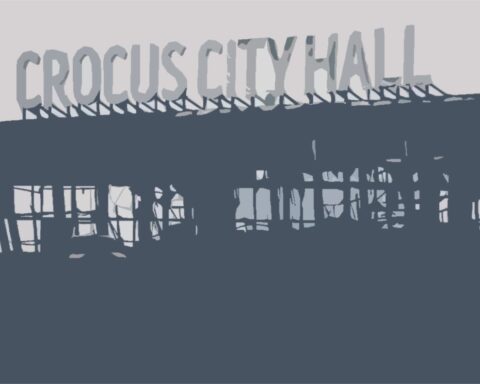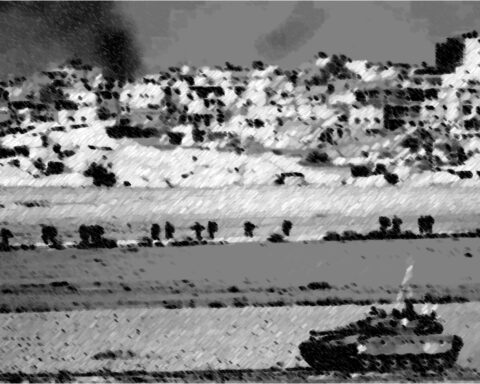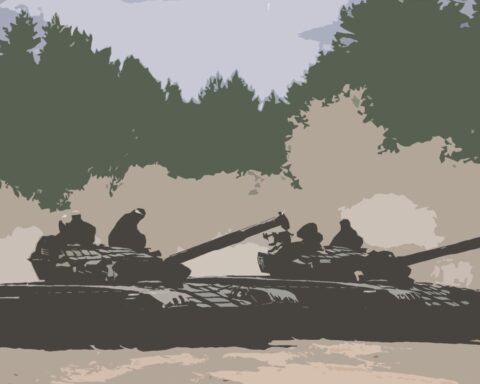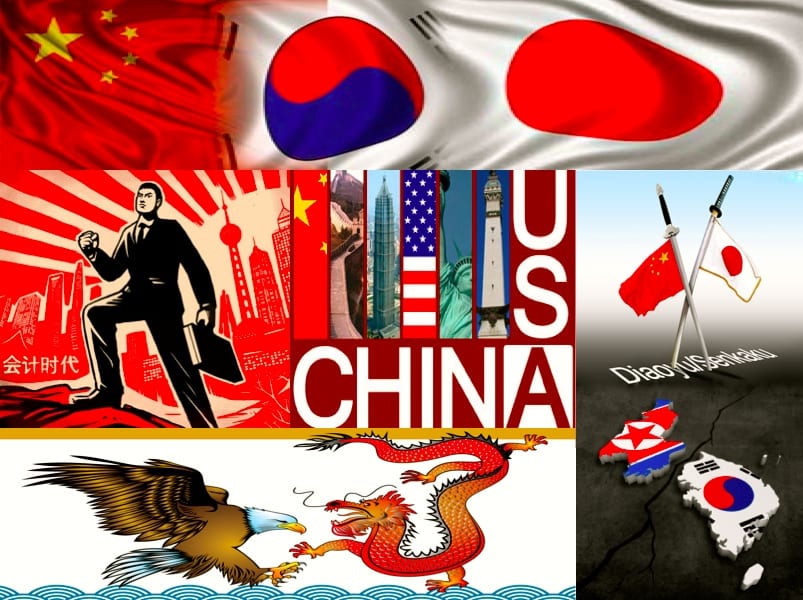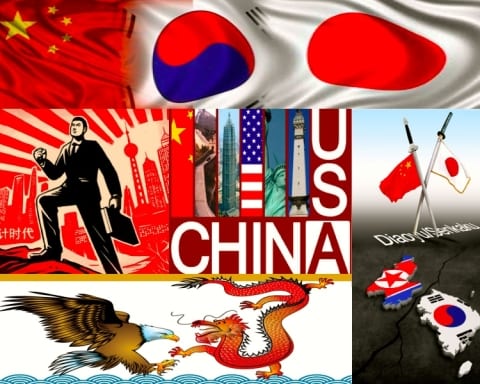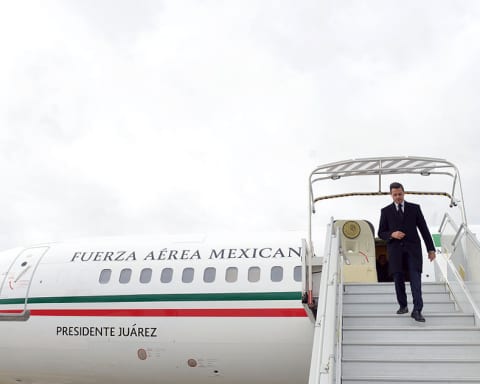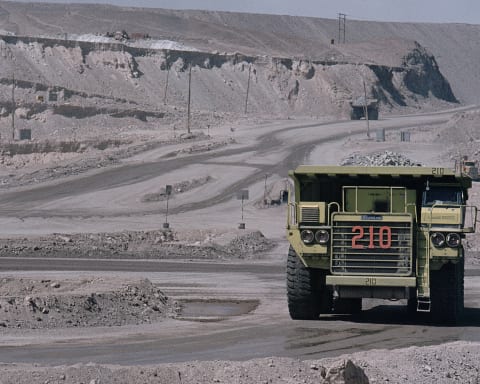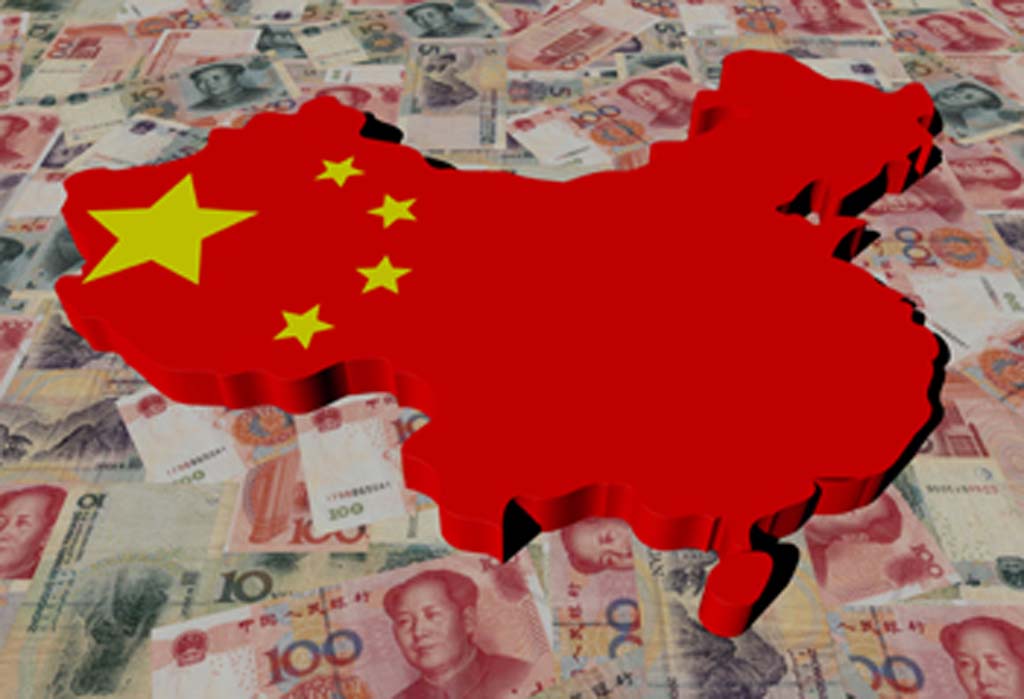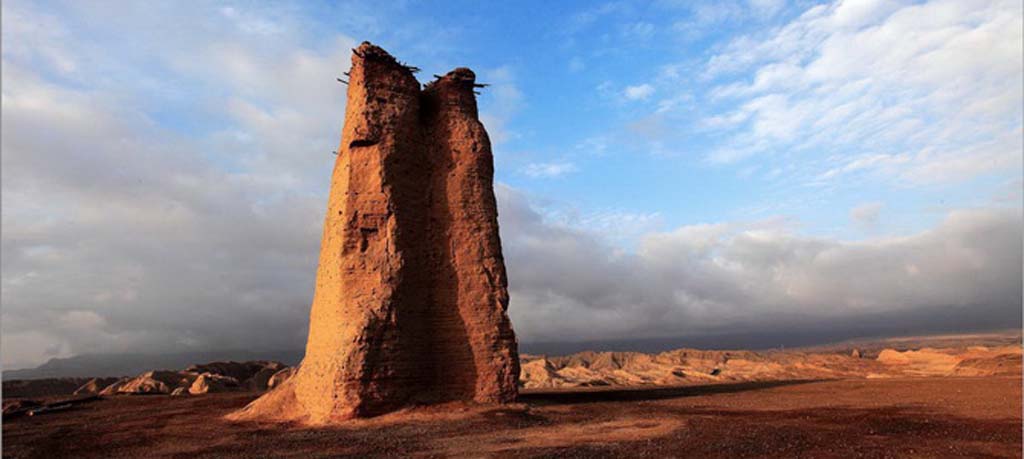There are various approaches to the journey of humanity, from the Age of Discovery, Industrial Revolutions, Enlightenment, Renaissance and Reformation Movements, the French Revolution, to the emergence of nation-states, leading swiftly to the present day. There are authors who remind us of Colonialism, Imperialism, and the Middle Ages from a contemporary perspective. Above all, each day, even every second, is immensely valuable for a world inhabited by 8 billion people!
Human Nature
When we talk about humans and the communities they create, we are essentially referring to highly complex structures. From the beginning, humans have been developing processes related to themselves and nature. In explaining these processes, people often turn to religion and philosophy. There is always a proportional assessment within notions of real or unreal, right or wrong, good or evil. The biggest mistake of those who want to impose differences on others is to make judgments that disregard the fundamental nature of humans. Humans find themselves in the natural conditions where they are motivated to develop. To unnecessarily oppress humans is nothing short of tyranny. It must be remembered that human nature is also ruthless. However, all these ultimately manifest as “politics.”
When we combine human development and the development of human life, particularly with economic, scientific, and technological advancements, the concept that emerges and becomes a subject of choice is politics. The way a certain community agrees among themselves, the motivation for development and power, advanced organizational capacity and effectiveness, and synergy are worth examining. When combined, these elements bring to light the philosophical, political, and economic differences within societies. Philosophy, politics, and economics are intrinsically and continuously connected.
Sometimes you might encounter discussions about “understanding the economy, its fundamentals, etc.” The main idea at the center of these explanations and analyses essentially encompasses descriptions based on human nature. The “relative” aspect I mention here is about how much artificiality and imagination are added to human nature, and only then can it be explained. For instance, just as campaigns are designed to market a product, campaigns related to a political idea or identity need to be thought of in the same way.
We need to find the formula for how interaction should be for development. Capitalism, despite its controversial aspects, undeniably proposes a comprehensive method that is driven by self-interest, satisfaction, fulfilling desires, and creating a welfare society. Just as efforts are made to motivate consumption, efforts must also be made to create and produce. The point of criticism here is the perspective of states or regimes towards their own societies. Naturally, people want to push their limits to create and produce. However, some state or government policies create an obstacle by wanting to maintain constant control. This situation is sometimes deliberately imposed on societies, or it occurs due to incompetence, which can also be described as a lack of organization.
At times, societies might face a necessity to produce under every condition or compulsion. It can be observed that where interaction is most intense, development shows itself more prominently. Problems and solutions come together and pave the way for development, but a heavy price is often paid. Since the 15th Century, regions such as Europe and America, or in other words, the Western world or civilization, have been significant fields of interaction, becoming a description of relative development in the “modern” era.
Although the 21st Century has seen significant developments in capitalism resulting in “globalization,” alongside this, all structures and ideas have changed. At least for the past half-century, a new era has emerged where global powers have become as influential as countries. Regardless of the political approach, the development of countries is happening in relation to their involvement with capitalism. There is no difference in ideologies, democracies, or autocratic governments; everyone and every system have their place within the whole. For example, whether a country’s administrative method is “state capitalism” or “liberal democracy,” capitalism always wins in the end. But one might ask, why are there so many conflicts and wars? The answer is that interaction, whether large or small, is a natural part of this development process. Capitalism loves democracy and liberalism but does not ignore others; it ultimately uses them all.
If an organization, state, or non-state actor can expand its capital for a certain profit and control other actors in the process, it is capitalist. There is a complete link between capitalism and the trade, production, and consumption chain. Socio-economic development enlarges capital, and capital, in turn, enhances socio-economy. Politics arranges the best conditions for this fluidity. As economic size increases in countries and therefore in the world, constant change also occurs. Change likewise ensures growth. Capitalism is flexible; whether it’s the state or non-state actors, the ultimate goal is growth. However, this must be managed with joint control for both itself and its collaborative partners for healthy development.
Competition, agreement, and disagreement are generally between actors. Capitalism desires financial growth. If competition and transformation are necessary for growth, which is the goal, then capital uses its power and also externally influences the processes between actors. Who are these actors? For instance, countries like the USA, China, Russia, or non-state actors like global companies, NGOs, scientific research centers, international organizations like the World Bank, etc. However, there can sometimes be ideological disagreements between the capitalist system and these actors. From the end of World War II to today, both the number of existing states and non-state actors and the size of financial capital have grown exponentially. We are in 2023, and the capitalist system is interested in growth.
Whether you like it or not, the magical side of capitalism is clear: Capitalism keeps people or societies in a fiercely competitive environment. The motivation loaded onto humans is to win, advance, or be more satisfied. These aspects are likely related to human nature, and almost everyone agrees on this point. In fact, the easiest are political efforts made to intervene in human nature. Humans naturally or necessarily perceive the situation they encounter at each step, accept it, and want to take a position according to the next situation. However, questions can be asked: What can you do to develop more, gain more power and value than others? What do you need to combine to produce values that are more advanced and surpass others? The point understood here, more clearly, is related to the meanings attributed to human nature. What can human nature most easily accept or, conversely, resist? The answers to these questions lead us to psychology, sociology, and ultimately economics. The maps and targets accepted within these perspectives are subjects that can be explained with policies.
Political Economy
Capitalist powers can deploy various persuasive methods. The main question they need to answer is this: Who does not want to grow, and do they have the potential to pose a future threat to the capitalist system? If not, it’s ignored; a capitalist never loses, they can always find or create more suitable opportunities for investment, trade, etc. The reason for not losing will be explained later in the context of social stratification.
What could hinder growth? Is there a problem within the nation-state or among non-state actors? Can international relations, driven by competition, lead to significant violence? Should the conditions of competition and the roles of actors be regulated? Is the capital allocated for investment being used in unnecessary places? What causes the breakdown in the production and consumption chain? If there’s a problem, under what circumstances and with whom should it be resolved?
When you consider these questions broadly, they essentially address the political economy of issues developing at different rates between nations and various societies. There is no conflict between nations and capitalists; if there is, the public does not see it. What is visible are the relationships between actors. The powers and domains of actors involved in the economic field of the modern world and international system are clear; usually, politicians are suitable for this role. The major capital authority of the world system is essentially an unreachable layer, known as the world economy layer.
I should mention that within the international system, as a nation-state, if you want to determine your economic position, you first need to identify where you stand among the layers of capitalism, where others or your competitors stand, and set your target based on this comparison. It’s nearly impossible for an actor to be excluded from this fundamental point under current conditions. If you are striving for economic growth, you will need a new and robust model, which must have the potential to be globally accepted.
In an economy-based perspective, the international system is essential, and national borders are considered permeable. If there is no economic permeability (along with diplomacy, politics, etc.), it’s termed a “closed” state or country. In capitalism, you should look at the capital located both within and just outside the country, and its trading partners. The fundamental characteristics of capital are; its ability to move across borders easily, constantly seeking growth, and adaptability to any environment. In a country, the power lies in the state. However, in the economy, power lies in capital. In modern developed nation-state systems, this issue is so interlinked with politics that no imbalance is seen; everything is in its place. At least, this is the case under current systemic conditions. In other words, the Theory of Power Balance is also valid here. Hence, “finance and economy ministers” play dual roles, and their job is to maintain the balance necessary in the capitalist system. Once again, let me emphasize, for a country, the “nation-state system” is fundamental, but in terms of engagement and cooperation according to the capitalist system, the freedom and choices of non-state actors are central to economic matters, and administrative organizations act with this awareness.
What are the layers of capitalism today? The layers of capitalism are: 1) The Global Economy Layer, 2) The Market Economy Layer, and 3) The Non-Economic Layer.
The financial growth of capitalism cannot be stopped. If the time has come, it will take strength from any kind of development in the world and expand. In the current conjuncture, certain states and non-state actors (whose numbers and capacities have greatly increased in the world, for example, China, India, global technology companies…) and events (global financial crisis, COVID-19, industrial revolution, climate change, war, Arctic region, and the use of cyberspace, etc.), coupled with the emergence of a massive volume of capital, require a capitalist system arrangement suitable for the growing capital.
In the international system, countries and states are classified as 1) Developed, 2) Developing, and 3) Underdeveloped. I gave examples. From Developed Countries; USA, UK, and Germany. From Developing Countries; China, India, Russia, Turkey, Iran, South, and North Korea. North Korea’s situation is a bit different, I deliberately chose these two sibling countries (divided country) as examples. From Underdeveloped, my example is Sudan. Apart from these, other countries will need to be mentioned.
The USA, UK, and Germany, within the layers of the world economy and market economy, are in a secure position for capitalism, integrated and in cooperation with each other. This structure is an anchor for the capital on a global scale. If the time for growth has come and a natural strain is felt in the capital, issues that need to be considered together with this structure will arise. Setting the rules, distributing power parameters and shares, etc. Essentially, these countries (and if we increase the example countries, we can also say the G7 countries) describe the development from Europe to the USA and globalization in historical capitalism. This is the reference system for capitalism.
China, India, and Russia, in the main body of the market economy layer, scattered but significantly within the world economy layer. However, these exemplified groups of nations have parts that extend both within the capitalist system and outside the developing states. Being within the market economy of the main body is important both internationally and for capitalism. These are nations that need to be extensively worked on in terms of economic policy. Because their main bodies are in the life space of the economy. Their interactions and stability situations should be controlled. In this exemplified group, if the system works correctly for capitalism, capital sizes can be achieved in economic matters like the market, supply-demand, price, etc. China is privileged for some nations, while others face it as a trade war. Russia, as is known, is at war and subject to sanctions. India is putting a lot of effort into economic policy.
These groups are looking for ways to dominate alternative sizes to Western-centric capital with their own capital accumulation, especially China and Russia are the forces striving for this. For example, the search for alternatives of these strong developing powers, such as with a formation like BRICS, is in question. Therefore, from the perspective of the world economy, the problem is not an alternative BRICS formation, but its controllability; arranging them to be gathered within the market economy layer is expected by capitalists. For this, serious efforts are needed to regulate the intense competition and armed conflict that arises.
Thus, historical capitalism will create inclusiveness to ensure financial growth, securing the world economic system and continuing its development. In this direction, capitalism is seen to want to expand by incorporating financial growth. The question is, how? The answer to this question involves a power struggle. Capitalism will continue this transition in a way that it wins itself. Even in wars, the growth of capitalism has continued to increase.
We can add Iran as an example of these developing countries because they have similar aspects. The only difference from the examples of China, Russia, and India is that Iran is largely in the market economy layer.
Another example of a developing country is Turkey. Turkey is within the boundaries of capitalism. However, while it should be in a structure that can expand in the market economy layer, it is expected to find a place close to the central countries such as the USA, UK, Germany, like South Korea in the world economy layer, although it is at a slightly lower level and positioned outwardly similar to the BRICS countries. If Turkey’s Minister of Treasury and Finance is involved in a process with the term “rational economy” today, this should not be considered random. Look at all the choices and practices related to the economy of the Government after the May 2023 elections; these can be explained as corrections within capitalism.
Meanwhile, I’d like to remind you of some changes. The Gulf Countries, especially the United Arab Emirates and Saudi Arabia, are developing economic and strategic relations with China. They became BRICS countries. For some countries, the financial cities newly built by Dubai and the Saudis will be transfer and development centers for the global economy. It might seem like “these Gulf Countries are drifting away from the policies of the USA and UK and leaning towards China.” No, don’t think that way, think “what is necessary is being done in the direction of a new financial growth trend with the inclusivity of capitalism.”
So, there’s a green energy transformation in the world, a lot of activity in cyberspace, wars are happening, but on the other hand, some countries are busy creating a new system structure for the world with financial discipline and new projects. Is the outcome clear? No. Will the power struggle continue? Yes. Can some states and non-state actors be left out of the game? Yes. Will new actors make room? Yes. Will financial growth secure itself? Yes. Will rapidly developing innovations and new normals leave some powers and groups behind? Yes.
Now let’s look at South and North Korea. After World War II, South Korea, initially set on track by the efforts of the great capital in the background and primarily the USA, is today where it needs to be. Where is North Korea? It’s difficult to explain politically, but if there’s a mind that continues to hold this country in its current structure, it’s not in vain.
Countries in the non-economic layer like Sudan, which are underdeveloped, are very different. These types of countries are target areas where capital stands outside, and once conditions are met, they can be integrated into the economy.
Hong Kong, Singapore, Dubai, such cities remind me of the leading cities of the Italian Renaissance. The best-known path of capitalism starts with cities and then sees nations suitable for its own working dynamics in the world.
Sometimes, societies may face the necessity to produce under any condition or obligation. It can be observed that development shows itself more in areas where interaction is most intense. Problems and solutions converge, paving the way for development, but a heavy price emerges. Europe and America, which have been significant fields of interaction since the 15th century, accelerating into the 20th century with World Wars, also known as the Western world or civilization, have become a definition of relative development in the “modern” era.
Although the 21st century saw the emergence of “globalization” due to the vast development of capitalism, parallel changes occurred in all structures and ideas. For at least half a century, a new era has emerged where global powers, as well as countries, have taken shape. Regardless of the political approach, countries’ developments are proportionate to their involvement with capitalism. In this context, ideologies, democratic or autocratic regimes make no difference; everyone and every system has a place within the whole. For example, whether a country’s administrative method is “state capitalism” or “liberal democracy,” capitalism always wins. But you might ask, if there are numerous conflicts and wars, what is the cause? Essentially, this is a natural state because interaction, whether large or small, is inherent in this development process. Capitalism favors democracy and liberalism but does not dismiss others; it ultimately utilizes them all.
If an organization, state, or non-state actor can amplify its capital for certain gains and control other actors in the process, it is capitalistic. There is a complete connection between capitalism, trade, production, and the consumption chain. Socio-economic development enlarges capital, and capital, in turn, boosts socio-economics. Politics arranges the most suitable conditions for this fluidity. With economic growth in countries and thus the world, constant change occurs. Change likewise ensures growth. Capitalism is flexible, aiming for growth whether through state or non-state actors, but this requires joint control for both its own stability and that of its collaborators, thus ensuring healthy development.
Generally, competition, agreement, and disagreement exist among actors. Capitalism desires financial growth. If competition and transformation are necessary for growth, and this is the goal, then capital uses its power to also externally influence processes among actors. Who are these actors? For example, states like the USA, China, Russia, or non-state actors like global corporations, NGOs, scientific research centers, international organizations like the World Bank, etc. However, there can be ideological disagreements between the capitalist system and actors. Since the end of World War II, both the number of states and non-state actors and the financial magnitude have grown exponentially. We are in 2023, and the capitalist system is interested in growth.
Whether you like it or not, the magical aspect of capitalism is clear: Capitalism keeps individuals or societies in fierce competition. The motivation imposed on humans is to win, advance, or achieve greater satisfaction. These aspects seem to relate to human nature, and there is general agreement on this point. Indeed, the easiest is the political efforts made to intervene in human nature. Humans naturally or obligatorily perceive every situation they encounter, accept it, and want to position themselves according to the next situation. Alongside this, questions can be posed: What can you do to develop further, to gain more power and value than others? To produce values more advanced and surpassing others, what do you need to combine? This point is about the meanings imposed on human nature. What can human nature easily accept or, conversely, resist? The answers to these questions lead us to psychology, sociology, and ultimately economics. These perspectives’ accepted maps and goals are subjects explained by politics.
In the Fifteenth Century, regional expansion was more closely linked to acquiring land, leading to the rapid development of nation-states. However, today, the focus has shifted from land acquisition to gaining people. How? Through technology, digitalization, and cyberspace. Nowadays, the decisions and desires of people challenge the administrative structures of states. Moreover, the mentioned cities or city-states are already setting up their systems in line with capitalist strategies from the beginning. We need to recognize that urban systems are at the forefront of rapid development today.
Has the method of conducting diplomacy changed? What about waging war, influencing broad sections of society, directing through media, and controlling all habits and new normals as humanity? Why? It is said that it’s because of our times. But does saying so sufficiently explain the situation?
Those who are to be governed are essentials to humanity. Everyone desires to govern. But where there is more profit, binding power, and dependency, the global system takes the lead. What does it govern? Food, water, energy, basic and rare elements, the new, and, of course, money.
Meta Capitalism and Its Association With Politics
Global competition ruthlessly reveals itself in the gray areas of geopolitics. You only deceive yourself with romantic expectations. You can develop the necessary defense ideas for yourself, but there will be no change in the steps of the dominant powers. How do dominant powers strategize their development and engage in global competition? I would like to explain this based on the principle of “commodity capitalism.”
Dominant powers look at events from above, they set the vision, hold finance capitalism and technology in their hands, control and manage processes. They also create a foundation for those who develop policies about the conformists and alternative powers. The basic policy of dominant powers largely involves global partnerships or agreements.
Eventually, the “commodity” that is put forward, bought, and sold, embodying competition, emerges. At this point, society needs to be technicized. For example, if everyone has a smartphone or a computer on their lap, it means society is now technicized. Electric vehicles, rockets sent to space, etc., are all progressive projects. Strategy and vision are developed together. To facilitate processes, consumer credit is provided to everyone if necessary, and the process is operated. Let’s not forget that there is a pyramid of creditors. The real owner of the card in your hand is not the one who sends you letters, and never forget that your bank is a broker.
In fact, in societies that are included or accessed, there is a dependency. This can also be interpreted as decolonization. The state has stepped back to a certain extent, and global or dominant power dominance is at play. There is no other way but to connect to the global network in country and state policies. After all, they have already started writing profits and losses in global competition with commodities. Politicians, media, academies, sellers, all describe a rule of experts to us. If experts maintain the power they work for neatly, there is an opportunity for peaceful and stable growth with commodity capitalism. Commodity capitalism is balanced within itself and develops its own culture. Policies of those who are compatible with this balance and culture develop easily.
The global order or decolonization partners offer a gift of adaptation and a system. This is called “shared sovereignty.” However, those outside the order are automatically marginalized and segregated. They don’t even need to make an effort for this. Those who want to segregate already act voluntarily. Let’s explain segregation: In the global order, alternative powers led by other experts are formed. As examples, think of Russia, China, Iran, or North Korea. For examples of compatibility with balance and culture, think of the European Union project. Look at this situation by placing concepts such as global system and culture, rule of experts, and sovereignty side by side. In this case, the global order deals with partnerships and alliances. It manages power relations, sets the conditions for economic competition, and looks at innovative scenarios. This order evolves within its own mechanics according to time and circumstances. You can evaluate political attacks that arise depending on time and place in this context. If a “definitive alternative” idea is advocated, that too is a policy. However, what kind of expertise are we the advocates of, when we have global financial conditions, commodity capitalism technologies, and constantly renewed products at hand? We need to know this well.
Commodity capitalism offers humanity artificial intelligence, automatons, communication, and networks. For example, in a few years, the USA and China will have fully operational global internet networks set up in space and terrestrial systems. Real and virtual, matter and spirit are intertwined, and a new lifestyle is developing. The real patrons of this are those who manage finance and technology globally and in a planned manner.
Whether compatible or alternative, what is the purpose of politics? Three items: Control, create new spaces, and establish governance.
The strategies and visions formed by global powers in terms of control, space, and governance are categorically different from those of regional powers. For example, three global rich investing in space at the same time is a result of a superior power. This kind of superior power pressure develops post-modernity. In another example, a global company plans to provide you with the internet through the Starlink project; what will it take from you in return, what will you become dependent on, what will you be dominated by, do you know? Maybe while you advocate a definitive alternative, you will ensure the revitalization of its market; but while you don’t know this, it will be able to control the entire market. Before making policy, one must know where and to what extent the power is.
The Joint Power of Products and Services
Look together at developed countries, developing ones, or underdeveloped ones, in terms of goods and services in the market, those who are visited, from America to Europe, from there to, say, Turkey, what do you see? You see that the products and service standards of brands,
multinational and global companies are largely the same. I view this as creating a joint power. Because all of these are concrete realities in understanding capitalism, even global capitalism. The most accessible, easily found, defined by certain standards, reliable, insured, satisfying, and even developments based on a principle are the attractive products and services. A lot of work is done for these to be accepted in this way, and all these efforts are not in vain.
Look at the developed and developing seeds, household items, energy systems and units, chemicals, cleaning and hygiene materials, conveniences, tools and equipment, construction equipment, hotels, air and sea routes, whatever comes to mind that affect your daily life, you can see these in the USA and in Turkey. Apart from the shares taken within the framework of partnerships and cooperation, those who are fundamentally strong and lead in goods and services are representatives of capitalism, and today these are the main working and capacity production areas of global capitalism.
For example, when a Japanese or Chinese brand alternative to an American or German brand enters the market; a global economic magnitude emerges, but you cannot overlook the main capital that invests in all these, buys or sells shares, produces value, decides to abandon one or determines its lifespan and introduces the new through R&D, often risking major losses.
As an example, let’s look at the discovery of semiconductors. For this purpose, think of the money spent up to the present-day microprocessors, including the necessary elements, research, software, and the production of machines and systems required for production; today, there is hardly any working device without them, right? Who financed these types of innovative productions, who took the risk? The answer to this question is clear: Those who knew how to produce value before, who could manage the produced values, who made a lot of money and decided to open up new areas.
Some create designs and styles, others create the market for products… The rest become a link in the production chain with the templates, standards, and methods they receive. But first, the power that finances the entire system must be taken into account.
There is a misconception regarding dominance or dominance in goods and services, which I criticize. It is said; I paid the money and bought the goods, what else? Aren’t capitalism, finance, credit, market conditions, and price determination important? Who is the real determinant? Don’t we need to answer this question first? In determining the boundaries of sovereignty, the share of the dominant party must be fully accounted for, as this is a binding element in terms of system integrity. What does it bind? How much of the sovereignty is possessed and its claim. The perspective on what share is in value production also determines the share of dominance in that area; think of it like a share of the pie, this is a more understandable situation.
Nature of Capitalism
In the classical period, capital was held by feudal lords and various powerful individuals in a dispersed manner. Approaching the 15th Century, we see capitalism becoming apparent through Italian city-states and discoveries. A Colonial System is now being spoken of in the world. Along with this, the politicization of capitalism, the modernization of constraints, the fluidity of capital, and the strengthening of states were witnessed. The development of such a capitalist structure was seen until the 18th Century. However, tyrannies, despotism, and autocracies still dominated the world. In Europe, religious wars began, and utopian and messianic approaches were advocated. The transition from the Middle Ages to the Modern Age happened in this period. Political geographies, monarchies, and empires spread. Some great leaders had the ideal of world dominance in mind. In Europe, during the time when this interaction strengthened, between 1450-1670, the Renaissance and Reformation movements were seen. It was now said that an Enlightenment process had begun. Subsequently, the following occurred: bankers and businessmen became widespread in the Netherlands, the Peace of Westphalia was signed (1648), the English Revolution occurred (1688), Montesquieu wrote The Spirit of the Laws (1748), the American State was founded (1776), the First Industrial Revolution took place (1784), and the French Revolution occurred (1789). From then on, Nation-States emerged, national interests were spoken of, the concept of sovereignty was clarified, the Theory of Balance of Power was formulated, countries began to base their policies on power politics, and the European Balance of Power System was spoken of, the Congress of Vienna took place (1815). The European Ideal, International Ideal, international politics topics such as realism, idealism, and constructivism were introduced. All these were developments that required definitions of the International System and Modern System. In the 19th Century, international institutions were established, the subject of International Law emerged, and alongside it, the Second Industrial Revolution occurred. Thus, the Republic and Modern Democracy found expression.
Why do I feel the need to explain these processes in this way? The development of the Industrial Revolutions, Capitalism, Nation System, Republic, Democracies was not random; they were interrelated, mutually nourishing or triggering systems. All of these must be well understood and digested. These are developments inseparable from one another. Even Globalization developed from this. This development also needs to be correctly placed and understood. How did the big explosion in the world economy happen at the beginning of the 20th Century? Wasn’t there a function of Capitalism and other aspects in this? Where and how did Non-State Economic Actors develop while Nation-States and the International System existed? How did theories of World Balance of Power emerge after discussions of European Balance of Power, you might ask? World War I, then the Treaty of Versailles (1919), and World War II… The world experienced a 30-Year War (1914-45). In these conditions, the Third Industrial Revolution and the Cold War (1947-91) occurred. Ideas of Marxism, Fascism, Internationalism were discussed. In all these, the concept of the economy was always an inseparable topic. Before the 21st Century, the Information or Digital Age began in the world. The idea of Globalization was fully understood (1986). From now on, there were National Powers along with Global Powers in the world. Where will Capitalism be? At the center of them all! Globalization is being experienced by our young generations as well, let me not explain the details in this flow. After all, the young generations assimilate the Digital Age and the Fourth Industrial Revolution better than we do. Humanity is now within Global Capitalism, whether you accept it or not!
The form and functioning of the nation-state, the positioning of a political institution or country within capitalism, and how it collaborates with various powers and organs should be considered as a package. Sometimes you can see this: with thoughts from the Ancient or Middle Ages, the issues that politicians defend today or describe as the way to salvation conflict with the established and seamlessly integrated system. This is nothing more than a dilemma. Here is the key phrase: One should not criticize or negate the system developing in its own nature; societies should choose to act maturely within this systematics.
The Nature of Globalization
Today, we need to understand well that there is a valid culture, civilization understanding, vision, and policy for all aspects of globalization, nation-state system, international system, international relations and law, global economy, socio-economic development, and even capitalism and imperialism. If these holistic concepts are read separately, deviations in the selected policy and different orientations in the economy occur. More importantly, innovations need to be brought to the competition and struggle among powers. What we keep in mind are human nature and the great competitive environment inherent to this universe. It is possible to see a definition related
to these differences within the ideology of each political formation in different centers and governments. These policies drag people, communities, or countries into wars, subject them to various trials even without war, and at the least, force them to look at the way of the side that constantly produces new values with the technologies, lifestyles, and methods put forward.
Roughly speaking, in people’s perspective up to globalization, we can talk about a capitalist approach based on earning and trading and accumulating this profit. This capital was transferred and enlarged from generation to generation. Then globalization began to show its difference in a distinct way. There had to be special and specific effort for global investment. This thought was able to grow capitalism in unbelievable ways. Because once resources, knowledge, and access rapidly transcended all boundaries, capital also exponentially strengthened its own magnitude. This meant new added value for every type of size and development. We started calling this “global capitalism.” Now, what we faced was not capitalism, but global capitalism.
In developed and developing economies, some politicians, by placing this “global scope” reading towards a certain goal, are able to achieve a success line both as far as they are concerned and in terms of “global system integrity.” The nature of global capitalism is to use, develop, and collect all possible values.
While the development of capital in the world is at the level of 80%, billions of workers and industries constantly compete for the remaining 20%, fighting to improve their lives. At these scales, who is the constant winner? What or who are politicians the advocate or interpreter of?
Globalization became a systematically developing issue as of 1986. Global companies are increasing in number and strength day by day. They highlight more useful investments, often innovative, and are interested in creating new rule areas suitable for themselves or areas outside the existing rules. Global powers have the potential to challenge every existing structure.
After 1986, global powers demand new definitions for all kinds of rules, mostly staying outside the conventional rules, allowing each actor to move freely with its unique model, creating suitable flexible development environments, and freeing capital from the regulatory pressure of nations. The main demand of global powers is for the nation system to create an opportunity for them to expand very quickly. On the other hand, nations complain that global actors, at the point where money is printed by central banks, point to constantly new value units, causing instability in the environment. However, nations, still wanting to control global actors while seeking ways to benefit from the socio-economic synergy created by all kinds of new technologies, continue. This situation can be called a challenging transition period.
Let’s look at the totals of Global Gross Domestic Product (GDP). In 1986, the total GDP reached 41.6 trillion US dollars. It has come to these levels exponentially. For example, when the Cold War began (1947), the total GDP was 9 trillion dollars. Similarly, the total GDP reaching 87 trillion dollars in 2008, which we mark as the Global Economic Crisis, is not surprising. Because the Third Industrial Revolution (1969-2017) was completed and the conditions for the Fourth Industrial Revolution were reached. The total global GDP exceeding 100 trillion dollars before the start of the Fourth Industrial Revolution (2015) and this momentum continuing at this pace makes us ask the following questions: For example, when the total GDP is at the level of 150-200 trillion dollars in the 2030s, what new normals will the global socio-economic and socio-political changes dictate to us? How will lifestyles be shaped? Still, as we approach 2024, we see that there is a lot of capital, but many economic problems, so where is this capital and what purposes is it aiming for?
Global Mega Cities
Singapore’s founding Prime Minister Lee Kuan Yew, current Florida Governor Ron DeSantis, and the Emir of the United Arab Emirates, Mohammed bin Zayed, are examples of leaders who, regardless of whether you like them or not, know where and how to direct their efforts. The main point here is not just that these leaders have created successful “global mega-city” systems, but also the importance of their consistent holistic approach and its concrete manifestation. Therefore, these leaders should be viewed not just as fleeting political figures, but as individuals who can be discussed and even emulated in certain aspects.
What are the fundamental factors in the socio-economics of global mega-cities? First, they become centers for the management of global capital, creating a common ground for global capital or investors. The most important criterion for global capital is the ability to further increase and fluidly utilize finance.
The second point is worth elaborating. It primarily involves hunting for global value creators. Ultimately, these value creators are individuals who, once they prove themselves, can be seen on lists of the wealthy. The atmosphere for innovation is fostered, and the path is cleared for innovative value creators. They are provided with planned capital in a controlled environment through agreements. This is not just a simple agreement, but a transnational matter; a mutual agreement between a powerful global actor and a new value creator, whether an individual, organization, or another actor. This has created a strong business field with necessary guarantees becoming binding. For instance, today, the investment methods for high returns for someone with deposits are clear, aren’t they? What else can be done? New and comprehensive methods have been established for companies with a global mindset and value. Investing in an idea or company before it materializes, buying and selling companies that are expected to yield high returns, has become the largest source of income. Imagine, for example, a microprocessor being produced, an application or software being developed, and billions of people around the world becoming its consumers… The major profits are now in investing in innovative inventions. In this context, the investor holds control and, naturally, a large part of the profits. A good investment typically yields returns in about seven years. Valuable companies become consumable items themselves, traded like goods, with their shares also being offered. Decisions are made about administrations that continuously generate income, increase in value as they grow, and create economic size. Thus, a newly created value that appeals to the whole world also becomes a high-value revenue source. So, the capitalist must first find this new value, nurture it, and take necessary actions to control it.
If you are in mega-city centers where huge incomes flow through global investments, you first notice the predominance of the service sector. These centers have resolved infrastructure and superstructure issues. Tourism and luxury consumption are key. There is great dynamism in a mega-city, and the hectic life creates its own discipline. Those who cannot adapt or conform are left out. The rule is that simple. It is clear that a leader must have a vision to create global appeal from their mega-city. The leaders of these mega-city systems have made themselves accepted by global capital, but their most important feature is that they have digested global capitalism and are visionary. The whole issue is about being able to develop, control, and manage global power.
When you visit Singapore, Dubai, or Miami, you can’t help but ask yourself, “What is here that isn’t in other places?” In these places, there is a system and understanding established by those who hold power, even if it’s just the “one percent” of the population. There are high buildings, luxury consumption, clean sidewalks, and well-functioning traffic. What don’t you see at first glance? You don’t initially see the power of capital that manages the immense returns of globalization.
What remains? Some will be producers, and almost everyone, including the producers themselves, will be consumers. Agriculture, industry, commerce, mining, energy, service, and real estate sectors are the employment areas for the large populations of countries. These sectors are essentially the capital production areas of the pre-globalization era, and we do not set them aside now. On the contrary, we see them as necessary areas but develop the main capital through investment. Again, a simple conclusion is that those who want to grow their business still need capital. Therefore, managing the flow and return of global capital is the most apparent business field.
Countries and Power
Consider countries and what stands out most in them. If a country has a significant population employed in agriculture and industry, possesses a sound political structure, and maintains economic balance, then it can create significance aligned with global capitalism, in addition to stability. In such stable countries, if the education system can nurture individuals who produce new values, integration with global capital is achieved. In such countries where capital circulates, the population is the best consumer, contributing to the increase of global wealth. In contrast, consider a poorly managed country with certain minerals in its land but lacks the capacity to extract them. Does this scenario sound familiar? In these countries, even if people conflict with each other and remain unstable, consume whatever is offered, experience distortions in consumption, mismanage their finances, and are far from producing value based on knowledge and technology, the global capitalist system is still affected if a power exists to extract these minerals. The point I’m trying to express is while the global system develops by using and valuing what it needs, the anatomies and stories of those left behind are not much different from centuries ago, and this is natural.
The debate between democracy and autocracy may continue for some time for many countries and unions, including powers like the United States, the People’s Republic of China, the Russian Federation, and the European Union. Democracy represents a free administrative system suitable for human nature, while autocracy represents a state-centered administrative system. Democracy can encompass concepts such as globalization, the nation-state system, international system, international law, global economy, socio-economic development, capitalism, and imperialism. It has a dynamic structure that can foster global growth within its own system of freedom and law.
The situation in China is more complex. For example, before Hong Kong was handed over to China, its appearance was founded on Western civilization and democracy. Today, Hong Kong is a special administrative mega-city after its handover to China. Sometimes, the public protests in the streets against the oppressive laws of the central Chinese government. Shanghai, another advanced mega-city in China, has a different situation. Shanghai is undoubtedly a city developed with the planning of the People’s Republic of China, but the capital-creating background of this state capitalism is not easily explained. It primarily involves capital initially established with the leadership of Western capital. Especially in the last half-century, China’s autocracy, or the General Secretary of the Communist Party, has presented itself as a wing or pole of capitalist development for the global system.
As in the case of the UAE, democracy is not a prerequisite for capitalism. Capitalism focuses on future profit and whether it has control. If countries and politicians are to take responsibility in emerging geographies and periods in the evolving context, it’s a partnership. This partnership focuses on mutual rational agreements for more profit.
We are somewhat familiar with the roadmap of the United States’ liberal democratic system. In these global conditions, powers like China and India create an environment of friction, competition, and interaction. For example, what is China doing or wants to do? I see China as a great potential for capitalism and global capital to double its income. With the entry of India into the discussion, the same perspective should be applied, in my opinion. Therefore, you should combine the potentials of the USA, China, India, and all other powers, and manage politics within this framework.
Looking at China with this approach, President Xi Jinping defends the ideology of the CCP (Communist Party of China). He wants the classical state control of global capital to develop. He conducts armament programs, including cyber-space and weapons of mass destruction, following the philosophy of Sun Tzu, who said, “The real war will be psychological!” The PRC operates according to this idea today, applying the philosophy of “Endless Dialogue.” The USA anticipates that this philosophy will hold it back in the global struggle. The PRC talks about “Existential Competition” and “Revisionism” programs along with “Endless Dialogue.” This method is seen as a way of internal progression within countries around the world.
In the grey period mentioned above, the PRC will try to complete its clear projects. These include the National Development and Reform Commission (NDRC), the Belt and Road Initiative (BRI), the Dual Circulation Strategy, the Fourteenth Five-Year Plan (2021-2025), the “Made in China 2025” (MIC 2025) Project, the Asian Infrastructure Investment Bank (AIIB), the EU-China Comprehensive Agreement on Investment (CAI), the Regional Comprehensive Economic Partnership (RCEP) in the Asia-Pacific, and ASEAN in Southeast Asia. Let’s note China’s development schedule here, with the time for each issue being 2049. Xi has indeed marked the year 2050 for this. President Xi Jinping, addressing Global Policies in 2012, said: “By 2050, the country will have a place of pride among the nations of the world.”
It is always possible to oppose any type of subject, event, or idea and to use every kind of opportunity for this. What is important is what you achieve while opposing something.
We can describe hostilities and oppositions; these are realities that can be explained with known patterns. We can even talk about the attempts of the 99% to organize against the 1%. Religion, language, ethnicity, geography, lifestyle, it doesn’t matter, protests of varying degrees by those dissatisfied with the world’s direction, and their political organization, are observed.
In the past, but more so today, we speak of proxies, tools, agents… In resistance-oriented discussions, who or what can be used by whom? Considering the interwoven conditions that lead societies into chaotic environments, it seems not always possible to find answers to some questions. However, it is clear that as strategy creation techniques and simulations develop, they create more mysteries for humans.
What I can see here is that it is a clear issue that minorities, despite controlling almost everything and benefiting from global capitalism, want to stand against the elite lifestyles. But how effective can they be? Could the resistant groups be open to use as a necessary function within the scope of global development?
In these chaotic conditions, the forms of conflict and war are also changing over time. It would not be wrong to foresee the change in this field from now on. After all, network systems, robots, and cyber-space are in play.
New Normal and Concrete Reality
“You often hear news like ‘Elon Musk did this, he did that.’ Every day, it’s possible to encounter such news. His ventures into Mars exploration, electric vehicles, new types of rocket systems and satellites, communication networks in the sky, robots, neural engineering, the wars in Ukraine-Russia and Israel-Hamas, social media… In many surprising aspects and points, the world talks about this man. And it’s not just him; names like Jeff Bezos, Larry Ellison, Warren Buffet, Bill Gates, Larry Page, Mark Zuckerberg are increasingly mentioned in this new era. We need to think that global logistics, information flow, and the speed of creating new things will direct human life through a network.
In recent years, the world has seen pandemics and wars, global economic problems, and recessions in the economies of major countries. Yet, capitalists like Elon Musk, who channel capital to global actors, completely diverge from these events. Moreover, they derive very different conclusions from all global issues, make specific moves, and are interested in ‘new perceptions’ to accelerate the ‘normalization’ of innovations.
As we look to the future, we must view it through the lens of globalization creating its own order. The big capital we’re discussing is increasingly becoming powerful in every aspect. Realities now go far beyond the thoughts of most countries, governments, politicians, and leaders. Ironically, while some are interested in going to Mars, the majority of the world’s population continues to live in the usual hustle and bustle, developing an immune system for ‘new normals’ in the face of events and developments of unimaginable scale, with no impact on the course and pace of production and consumption.
Aren’t you tired of hearing about various problems of economies that have gone through significant trials like the 2008 global financial crisis, Covid-19, wars in Ukraine and the Middle East, global climate change? Then we see a growing interest in armaments and technological consumer goods. The electric vehicle market is being touted as a solution. Investments in green energy transformation are increasing. Rockets for space tourism are launching and landing…
The nation-state systems, which became more apparent from the 1970s onwards, have evolved today into a more developed form of globalization; the full adaptation to the development of the global economy is to become a global mega-city. So, what happened to the state? The state is always there, varying in management style according to the characteristics of each country. There’s even a connection between the state’s structure and governments. Singapore is an example of a city-state. In the UAE, besides the local population of 1 million, there are 9 million immigrants employed. From their perspective, these working immigrants in the majority population are modern-day slaves, employed in jobs serving the UAE’s purposes. If immigrants fail to meet their responsibilities, they are expelled from the country, as clear as that. Look at Florida in the United States; there you see an interwoven system. For example, while other states tax the real estate sector, Florida does not need to, as it can generate more income from other contributing sources. The dynamism created in the state is seen as sufficient for more attractive gains. When looking at these various examples together, the prominent point is ‘realism’ rather than concepts of democracy or autocracy.
Looking at real or potential economic magnitudes, let’s ask a simple question: In the context of ‘creating value’ worldwide, where both money and intellect and motivation are present, what kind of conditions can global powers offer people to ensure their exponential growth when they base their growth on their own control? Another way to ask: What kind of limitations and activities can new normals, new technologies, new investment areas (including systems related to robotics and neuroscience, space, green energy, etc.), and the network of new mega-cities categorize people into?
As you notice, I continuously talk about realism, but this is a realism oriented towards the concrete. You might ask, what is real? Setting aside the debate of what is or isn’t real, ‘concrete-realism’ is a different matter. The rules of the game built on concrete-reality in global capitalism need to be well assessed. Whether you look at the individual, society, or country, any scale, the issues of lagging behind or advancing can be explained in this context. These relative concepts can drag you to a place in the political field, but by the time you realize the situation, it may be too late. What’s important is to know where the real gain is. The gain is expressed as a very fundamental point for living beings: survival. The point not to forget is that many civilizations that couldn’t keep up with time are now only subjects of study for archaeologists and historians.”
Conclusion
In conclusion, the article provides a comprehensive analysis of the current global scenario, driven by the forces of globalization and influenced by the vision and actions of global capitalist leaders. It highlights the evolving nature of politics, economics, and societal norms in the face of these changes.
